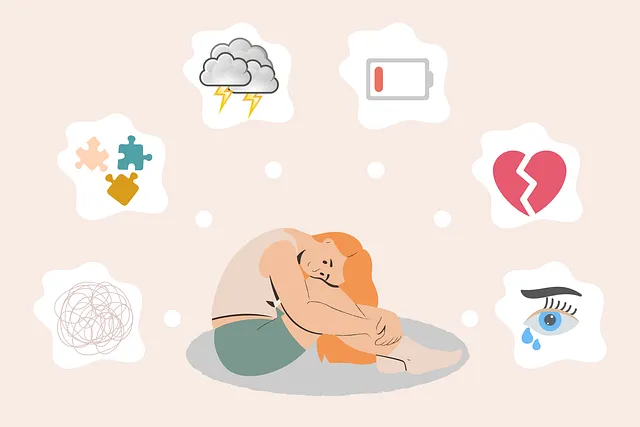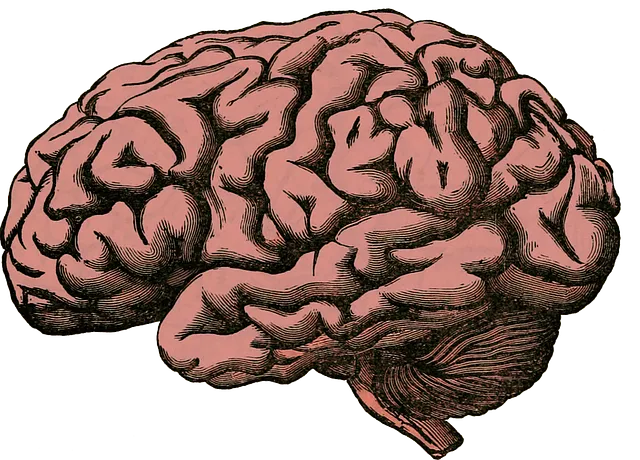Kaiser Permanente mental health Wheat Ridge is addressing the significant barrier of stigma surrounding mental illness through comprehensive initiatives. By educating both healthcare providers and communities, they aim to reduce judgment, encourage open conversations about mental health, and improve access to essential services. Strategies include training on empathetic communication, early intervention programs, and sharing personal stories, fostering a supportive environment where individuals feel empowered to seek help and prioritize their mental well-being.
Mental illness stigma remains a significant barrier to accessing quality mental healthcare. This comprehensive article explores various facets of stigma reduction efforts, focusing on Kaiser Permanente’s approach at their Wheat Ridge location. We delve into the profound impact of stigma on individuals and communities, while offering practical strategies for healthcare settings to foster an inclusive environment. Through community engagement and education, we examine how organizations like Kaiser Permanente are empowering positive change for mental health equality.
- Understanding Stigma: A Barrier to Mental Health Care at Kaiser Permanente Wheat Ridge
- The Impact of Stigma on Individuals and Communities
- Strategies for Reducing Mental Illness Stigma in Healthcare Settings
- Kaiser Permanente's Approach to Breaking Down Stigma Barriers
- Community Engagement and Education: Empowering Change for Mental Health Equality
Understanding Stigma: A Barrier to Mental Health Care at Kaiser Permanente Wheat Ridge

Stigma surrounding mental illness remains a significant barrier to accessing healthcare at Kaiser Permanente Wheat Ridge. Many individuals struggle with recognizing and accepting their own mental health challenges, often due to societal perceptions that demonize conditions like depression or anxiety. This misconception can deter people from seeking support, leading to prolonged suffering and potential exacerbation of symptoms.
At Kaiser Permanente, understanding these barriers is crucial for implementing effective strategies, such as the Mind Over Matter Principles, designed to foster a supportive environment. By integrating Depression Prevention and Burnout Prevention Strategies for Healthcare Providers into routine care, the organization aims to reduce stigma and encourage open conversations about mental health. These initiatives not only benefit patients but also equip healthcare providers with tools to offer compassionate, understanding, and effective treatment.
The Impact of Stigma on Individuals and Communities

Stigma surrounding mental illness can have profoundly negative effects on both individuals and communities. It often leads to shame, social isolation, and a reluctance to seek help, exacerbating existing challenges. For instance, research by Kaiser Permanente mental health Wheat Ridge highlights how stigma can contribute to prolonged suffering and poorer outcomes for those dealing with conditions like depression or anxiety. In communities, this can manifest as a lack of support networks, reduced access to quality mental healthcare, and even increased rates of unemployment and housing insecurity among stigmatized individuals.
Efforts to reduce mental illness stigma are crucial to building healthier, more inclusive communities. Programs designed with a focus on Mental Health Education and the integration of Cultural Sensitivity in mental healthcare practice have shown promise. By promoting understanding and empathy through initiatives like burnout prevention strategies for healthcare providers, we can foster environments where individuals feel comfortable discussing their struggles openly. This, in turn, encourages early intervention and access to evidence-based treatments, ultimately improving outcomes and enhancing overall community well-being.
Strategies for Reducing Mental Illness Stigma in Healthcare Settings

Reducing stigma in healthcare settings is a vital step in fostering an environment that supports individuals living with mental health conditions. Organizations like Kaiser Permanente Wheat Ridge are at the forefront of this initiative, implementing various strategies to create a more inclusive and understanding atmosphere. One key approach involves training healthcare professionals on effective communication strategies, ensuring staff members can interact with patients without judgment or preconceived notions. This education extends to explaining mental health conditions in accessible terms, promoting empathy and compassion.
Additionally, Wheat Ridge focuses on empowering patients through self-care routine development. By encouraging individuals to prioritize their well-being, they are equipped to manage symptoms and reduce the impact of stigma. Programs targeting depression prevention are also integral, as early intervention and awareness can significantly lessen the societal and personal consequences often associated with mental illness. These comprehensive efforts contribute to a more supportive healthcare ecosystem.
Kaiser Permanente's Approach to Breaking Down Stigma Barriers

Kaiser Permanente, a leading healthcare provider, has been at the forefront of mental health advocacy and has adopted an innovative approach to breaking down stigma barriers associated with mental illness. Located in Wheat Ridge, their comprehensive strategy involves a multi-faceted initiative that includes communication strategies aimed at fostering understanding and empathy within communities. By organizing educational workshops, panel discussions, and sharing personal stories, Kaiser Permanente facilitates open conversations about mental health, challenging stereotypes and promoting a culture of support.
Through these mental illness stigma reduction efforts, they empower individuals to recognize the signs of distress and encourage them to seek help without fear of judgment. The organization also emphasizes the importance of emotional healing processes, ensuring that patients receive not only medical treatment but also therapeutic support tailored to their unique needs. This holistic approach has significantly contributed to creating a more inclusive environment where mental health is prioritized and supported on a larger scale.
Community Engagement and Education: Empowering Change for Mental Health Equality

Community engagement and education are powerful tools in the fight against mental illness stigma. Organizations like Kaiser Permanente Wheat Ridge play a vital role in fostering mental health equality by empowering individuals and communities to understand and support those facing mental health challenges. Through various initiatives, they promote open conversations about mental well-being, encouraging folks to embrace inner strength development and self-care routine establishment as essential components of overall health.
By engaging community members in discussions around mental illness, self-esteem improvement, and the normalization of seeking help, Kaiser Permanente Wheat Ridge aims to dispel myths and reduce stigma. Educational programs often include workshops, seminars, and peer support groups that provide practical strategies for managing mental health issues while fostering a culture of compassion and understanding. These efforts contribute to a more inclusive society where individuals feel supported and encouraged to prioritize their mental well-being.
Mental illness stigma reduction is a vital step towards fostering inclusive healthcare environments, such as those at Kaiser Permanente Wheat Ridge. By understanding the profound impact of stigma and implementing evidence-based strategies, like community engagement and education, we can break down barriers to care. Kaiser Permanente’s innovative approach underscores the potential for significant positive change in mental health equality, paving the way for a more accepting and supportive society for all individuals seeking support.






